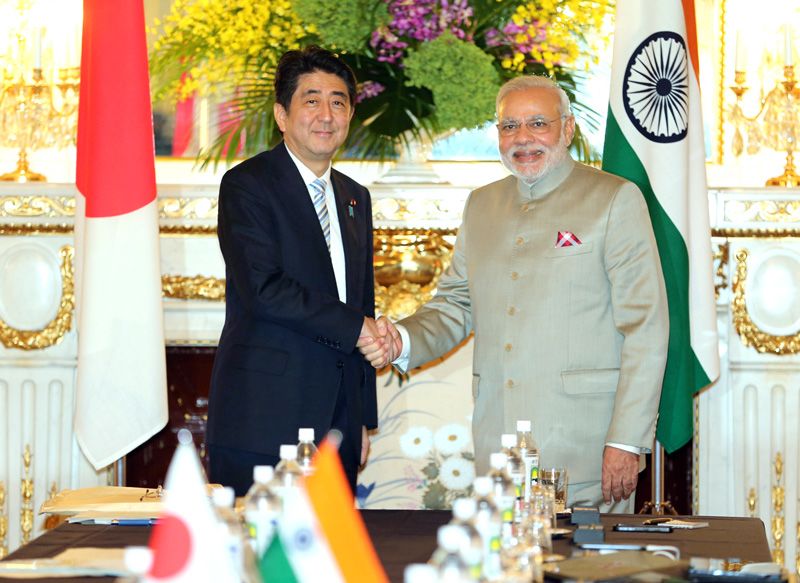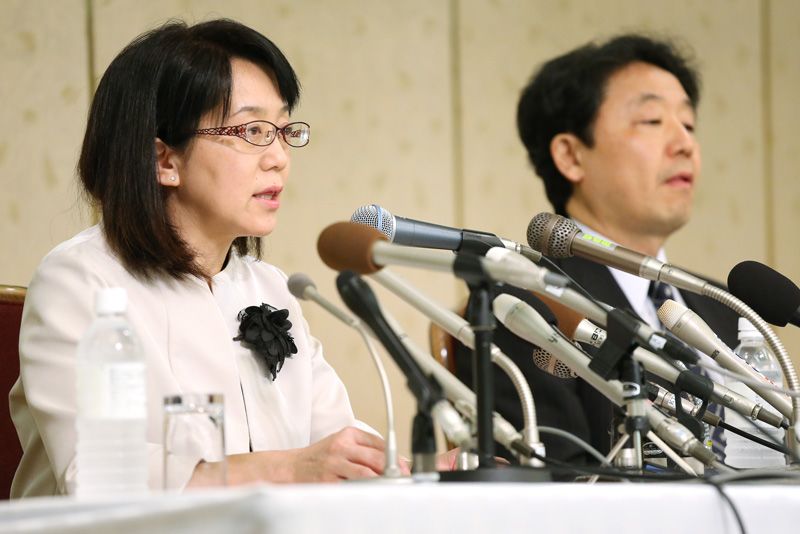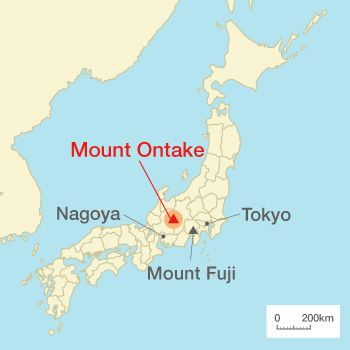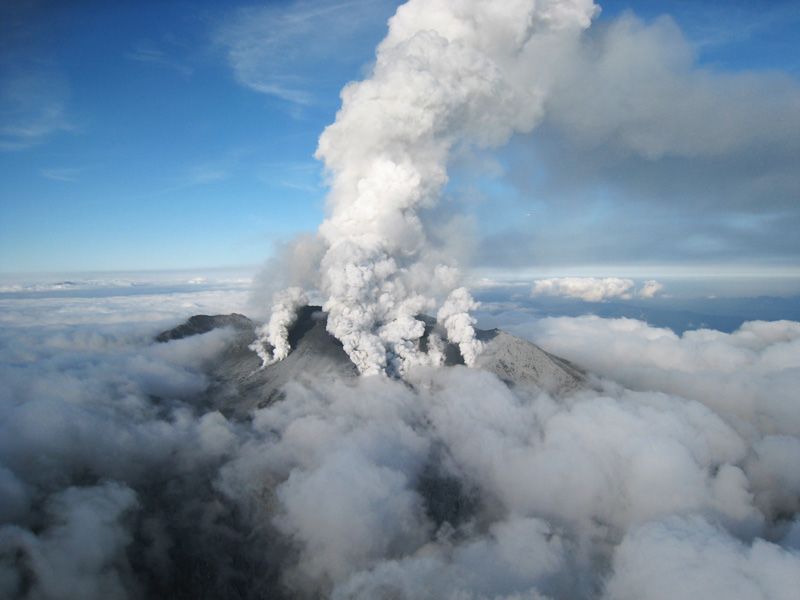Timeline for September 2014
Politics Economy Science Technology Society- English
- 日本語
- 简体字
- 繁體字
- Français
- Español
- العربية
- Русский
1
Prime Minister Abe Shinzō and Indian Prime Minister Narendra Modi release a joint statement in Tokyo announcing closer economic and security ties. As Abe pledges to invest ¥3.5 trillion in public and private projects in India, the two countries agree to hold joint naval exercises and to further discuss holding “two-plus-two” security talks involving their foreign and defense ministers.
 Prime Minister Abe and Prime Minister Modi meet at Akasaka Palace, Tokyo. © Jiji.
Prime Minister Abe and Prime Minister Modi meet at Akasaka Palace, Tokyo. © Jiji.
Fukushima Prefecture Governor Satō Yūhei officially accepts a central government plan to build a facility in the prefecture for storing radioactive soil and other materials contaminated after the accident at the Fukushima Daiichi Nuclear Power Station for a maximum of 30 years. The government plans to construct the facility on a 16 square kilometer site in the towns of Ōkuma and Futaba and aims to start transportation of soil in January 2015.
3
Prime Minister Abe reshuffles his cabinet. Chief Cabinet Secretary Suga Yoshihide, Deputy Prime Minister and Finance Minister Asō Tarō, Minister for Economic Revitalization Amari Akira, and Minister for Foreign Affairs Kishida Fumio remain as key personnel. Abe appoints Ishiba Shigeru as minister in charge of reviving local economies and names a record-equaling five women as cabinet ministers. There are also new appointees to all four Liberal Democratic Party leadership positions, including Tanigaki Sadakazu as party secretary general.
4
Japan, the United States, and other members of the Western and Central Pacific Fisheries Commission agree to halve catches of immature (less than 30 kilogram) Pacific bluefin tuna from 2015. The fish is commonly used in sushi and concerns about depletion of stocks have heightened in recent years. By imposing limits, the WCPFC is aiming to double the adult population in the next decade, to 43,000 tons.
The government announces that mosquitoes collected in Tokyo’s Yoyogi Park have been found to be carrying the dengue fever virus and closes off around 80% of the park. This follows the August 26 confirmation of Japan’s first cases of domestically transmitted dengue fever in nearly 70 years. The Ministry of Health believes that tiger mosquitoes in the park spread the virus after biting an individual who had been infected while overseas. As of September 29, a total of 150 cases have been recorded in Japan.
5
New Japan soccer coach Javier Aguirre takes charge of the national team for the first time in a Kirin Cup match at the Sapporo Dome. Japan (ranked 44th in the FIFA world rankings) loses 2–0 to Uruguay (6th). On September 9, Japan draws 2–2 with Venezuela (29th) at the Nissan Stadium, Yokohama.
6-9
Prime Minister Abe visits Bangladesh and Sri Lanka. On September 6, in the Bangladeshi capital Dhaka, Prime Minister Sheikh Hasina withdraws Bangladesh’s candidacy for the October 2015 United Nations Security Council election in favor of Japan, thus assuring Japan’s election as a nonpermanent member. On September 7, Abe meets Sri Lankan President Mahinda Rajapaksa in Colombo. The two countries bolster naval security and other ties.
8
Tenth seed Nishikori Kei loses in straight sets (6–3, 6–3, 6–3) to fourteenth seed Marin Cilic of Croatia in the US Open Tennis Championships men’s singles tournament. Nishikori had beaten top seed and world number one Novak Djokovic of Serbia in the semifinals to become Japan’s first Grand Slam singles finalist.
11
Asahi Shimbun Co. President Kimura Tadakazu apologizes for and retracts a May 20 article concerning Yoshida Masao, former manager of Fukushima Daiichi, after the government releases Yoshida’s testimony in the inquiry following the 2011 accident at the nuclear power plant. The newspaper had claimed that around 650 employees disobeyed his instructions and fled the plant on March 15, but this is contradicted by the released testimony. Kimura also apologizes for last month’s belated retraction of 1982 articles about forced recruitment of “comfort women” in South Korea, which were based on false witness testimony.
12
A female patient in her seventies becomes the world’s first person to be treated with induced pluripotent stem cells in a collaboration between the Riken Center for Developmental Biology and the Institute of Biomedical Research and Innovation Hospital, both in Kobe. In the operation, retina cells produced from iPS cells were transplanted into the eye of a woman suffering from age-related macular degeneration in a major step toward widespread practical application of regenerative medicine.
 Takahashi Masayo, Riken project leader (left), and Kurimoto Yasuo of the Institute of Biomedical Research and Innovation Hospital (right) at a press conference after the world’s first operation using iPS cells. © Jiji.
Takahashi Masayo, Riken project leader (left), and Kurimoto Yasuo of the Institute of Biomedical Research and Innovation Hospital (right) at a press conference after the world’s first operation using iPS cells. © Jiji.
17
Japan, China, South Korea, and Taiwan agree to cut permitted procurement of elvers for use in farming by 20% as part of efforts to maintain Japanese eel stocks by preventing overfishing of young eels. In June, the International Union for Conservation of Nature added the Japanese eel to its Red List of Threatened Species.
18
The International Whaling Commission votes to accept a resolution by New Zealand to tighten the overall rules on research whaling and extend a moratorium on Japan’s research whaling in particular. However, the Japanese delegation indicates it will not comply with the nonbinding resolution, which would have meant not engaging in whaling until 2016 at the earliest. Japan’s proposal to permit the catching of 17 minke whales in its coastal waters was rejected.
19
Chief Cabinet Secretary Suga states at a press conference that North Korea is in the preliminary stages of its investigation of abducted Japanese citizens, which is to be completed in around a year. He says that both countries had agreed that the first results should be released around the end of summer or the start of autumn, but that they had been delayed.
21
Nippon Ishin no Kai (Japan Restoration Party) and Yui no Tō (Unity Party) merge to form Ishin no Tō (Japan Innovation Party). The new party has a total of 53 Diet members, with 42 in the lower and 11 in the upper house, and is the second-largest opposition party after the Democratic Party of Japan. It is coheaded by Osaka Mayor Hashimoto Tōru, former JRP leader, and Eda Kenji, former UP leader.
23
Kobe police officers discover the dismembered body of Ikuta Mirei, a first-grade schoolgirl who disappeared in the city on September 11. DNA testing of the body parts, found in several plastic bags, confirms that they are those of the missing girl. On September 24, Kimino Yasuhiro, a 47-year-old local man, is arrested on suspicion of having disposed of the body.
27
 Mount Ontake, a volcano on the border of Gifu and Nagano Prefectures, erupts for the first time since 2007. A number of climbers were near the 3,067-meter summit of Japan’s second-highest volcano at the time of the eruption. As of October 3, there are 47 confirmed deaths, making this Japan’s deadliest eruption in the postwar era. Volcanologists say that the initial eruption was “phreatic,” in which heated groundwater becomes steam, venting ash and rock but no lava.
Mount Ontake, a volcano on the border of Gifu and Nagano Prefectures, erupts for the first time since 2007. A number of climbers were near the 3,067-meter summit of Japan’s second-highest volcano at the time of the eruption. As of October 3, there are 47 confirmed deaths, making this Japan’s deadliest eruption in the postwar era. Volcanologists say that the initial eruption was “phreatic,” in which heated groundwater becomes steam, venting ash and rock but no lava.
 A photograph from a rescue helicopter of Mount Ontake erupting, taken at around four o’clock on the afternoon of September 27. Photograph courtesy of Chūbu Regional Development Bureau, Ministry of Land, Infrastructure, Transport, and Tourism (via Jiji).
A photograph from a rescue helicopter of Mount Ontake erupting, taken at around four o’clock on the afternoon of September 27. Photograph courtesy of Chūbu Regional Development Bureau, Ministry of Land, Infrastructure, Transport, and Tourism (via Jiji).
29
Prime Minister Abe gives his policy speech at the start of this year’s extraordinary Diet session. “We will continue to target the overcoming of deflation and put the highest priority on the economy,” he says, also stressing initiatives to rejuvenate local economies. In international affairs, he states that he aims to build “a stable friendship” with China and wishes to hold a bilateral summit at the earliest possible opportunity. The Diet session will last 63 days until November 30.
Fukushima North Korea cabinet reshuffle Asahi Shimbun iPS cells whaling Narendra Modi Nishikori Kei Dengue fever Javier Aguirre volcanoes Mount Ontake